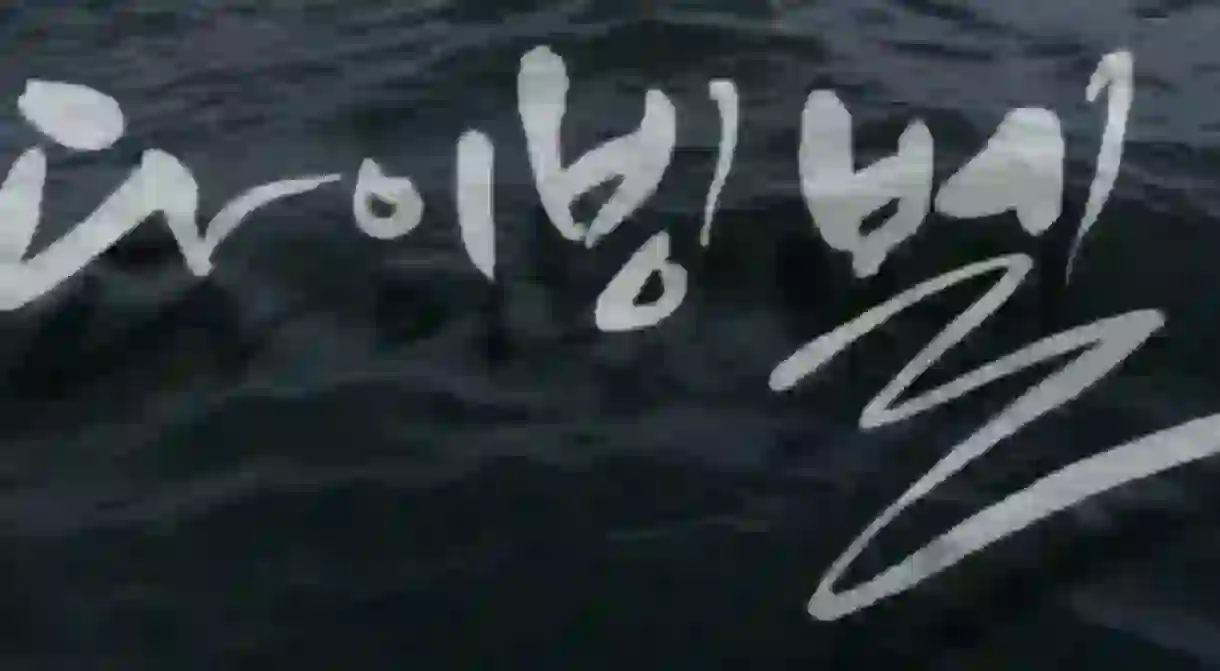South Korean Documentary 'Diving Bell' Probed A National Tragedy

On October 2014, amid much controversy and public scrutiny, the Busan International Film Festival held the premiere of The Truth Shall Not Sink with Sewol, or Diving Bell. The 77-minute film attacks of South Korean society via a close examination of a single catastrophe.
On April 16, 2014, the nation stood by and watched as the Sewol Ferry capsized. Of the 476 passengers, 172 survived, 304 were missing. Most of them were high-school students.
Before the ferry was completely submerged, South Korea’s Coast Guard, the Navy, and the government had a window of time, a “golden time”, to rescue the remaining passengers. Reports prove that the Park administration neither held meetings nor communicated a plan of action. With the nation’s leaders failing to organize an efficient rescue effort, the words “304 missing” were replaced by “304 dead”.
Six days later, Jong In Lee, the head of Alpha Diving Corp., attempted to organize a search and rescue effort using a “Diving Bell”. The documentary explains that the equipment would allow extended dives and, if used successfully, reduce casualties. Yet not only were Lee’s efforts hampered, the media framed Lee as an opportunist who was obstructing the government’s rescue efforts.
Sang Ho Lee and Hae Ryong Ahn’s Diving Bell unearthed the South Korean government’s incompetency in dealing with the disaster, as well as the corruption of the media. The film comprises mostly news footage, voice overs, and interviews conducted and collected by the journalist Lee during the crisis.
Lee and Ahn let the footage speak for itself in revealing how media outlets colluded with the government in releasing false information to conceal the gravity of the disaster. The film was revelatory in showing how corruption and capitalist greed has rooted itself in South Korean society. It is also a condemnation of the press’s complacency in regard to government manipulation.
Diving Bell was also at the forefront of protecting freedom of speech. Prior to the documentary’s premiere at Busan, festival director Yong Kwan Lee was pressured by the city’s mayor not to show it. As Joong Ang News reported, the festival screened the film despite the warnings, claiming its right to freedom of speech and artistic expression.
Diving Bell continued its fight for the right to free speech as Yong Kwan Lee was continuously pressured to resign his position. The directors of the Berlinale and the Rotterdam International Film Festival expressed their concern towards the stifling of artistic expression. It was the directors’ hope that international recognition and the box-office success of Diving Bell would spark other efforts to bring attention to the Sewol Ferry crisis.
The documentary garnered international attention as foreign filmmakers urged not only South Koreans, but the world to watch and remember the catastrophe. Joshua Oppenheimer, the director of the Oscar-winning documentary The Act of Killing, described the Sewol Ferry rescue effort as “incredibly incompetent”. Directors Michael Moore and Béla Tarr also voiced their support for Lee and Ahn’s boldness in exposing the treachery of the South Korean government.
Many voiced opposition to the documentary, however. Its critics argued that Lee was excessively involved in the film, causing it to become narrowly one-sided. Several victims’ families condemned the film for reopening their wounds.
Film critic Sung Chan Byun defended the film’s subjectivity. Byun wrote that the subjectivity and emotional quality of Diving Bell mirrored the stronghold of corruption and deceit. In response to these criticisms, Lee admitted that he did not create Diving Bell for its cinematic value and said he didn’t deny his inadequacy as a filmmaker.
Yet her urged people not to ignore the film, contending that every South Korean citizen was responsible for the 304 lost lives through their collective apathy. When the victims trapped in the ferry were sinking to their death, the Coast Guard, the Navy, and the government prioritized “saving face” over saving lives. Poet So Yeon Kim wrote that Diving Bell was a testament to the government’s competence in hiding its incompetence.
Diving Bell also became a symbol of the ongoing nightmare of the victims’ families as the government continued to resist the demands to salvage Sewol Ferry. GoBal News, Sang Ho Lee’s independent news agency, reported that a number of the victims’ mothers had begun an international campaign to reveal the truth of the disaster and salvage the ship to recover the remaining bodies.
Korean immigrant mothers began working to remind the public that the struggle for truth was not over. Members of Missy USA, a popular website for middle aged Korean women in the United States, ran an advertisement in the Washington Post demanding that the government “bring the truth to light”. An advertisement in the New York Post was reminiscent of the Diving Bell poster declaring that ‘”the truth shall not sink”.
As Oppenheimer stated in reference to Diving Bell, it is typical of a murderer to kill again in order to cover up his or her crimes. As the people of South Korea fell back into the comfortable cycle of their daily lives, the vicious cycle of lies, broken promises, and inept leadership began again. Diving Bell provided a stark reminder that as a nation which claims democracy, it is the government’s duty to protect its people. However, it is also the responsibility of the people to hold the nation’s leaders accountable.
Throughout South Korea’s 5,000 years of history, the people have endured constant invasion, internal conflict, and corruption. Yet the nation continues to exist because of the minority that deeply understands the urgent need for change.
This film represented the voice of the minority that comprehended that the ferry tragedy was not the first time that the South Korean government has failed to perform its most basic duty. Diving Bell warned that the Sewol Ferry disaster will happen again if the nation continues to turn a blind eye to the government’s perpetual violation of basic human rights.













